If you’re looking to get stronger, lose weight, or just feel more energized throughout the day, you’ve probably heard a lot about high-protein diets. But with so much information out there, it can be hard to figure out the best way to incorporate more protein into your life. Don’t worry, I’m here to break it down for you in a straightforward, easy-to-follow way.
A high-protein diet isn’t just for bodybuilders or athletes. It’s great for anyone looking to build muscle, lose weight, or just maintain a healthy lifestyle.
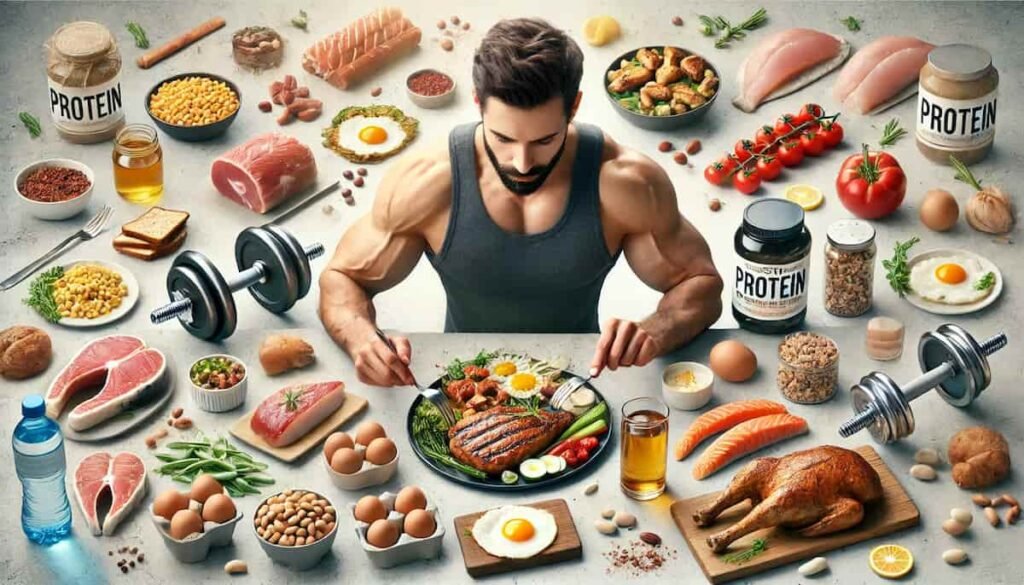
Let’s dig into why protein is so important, how to choose the best sources, and the pros and cons of adopting a high-protein diet.
Why Is Protein So Important?
Protein is one of the three macronutrients (along with fats and carbohydrates) that your body needs to function properly. It’s made up of amino acids, which are the building blocks for everything from muscles and bones to skin and hair. Check out our review for 1200-Calorie Diet.
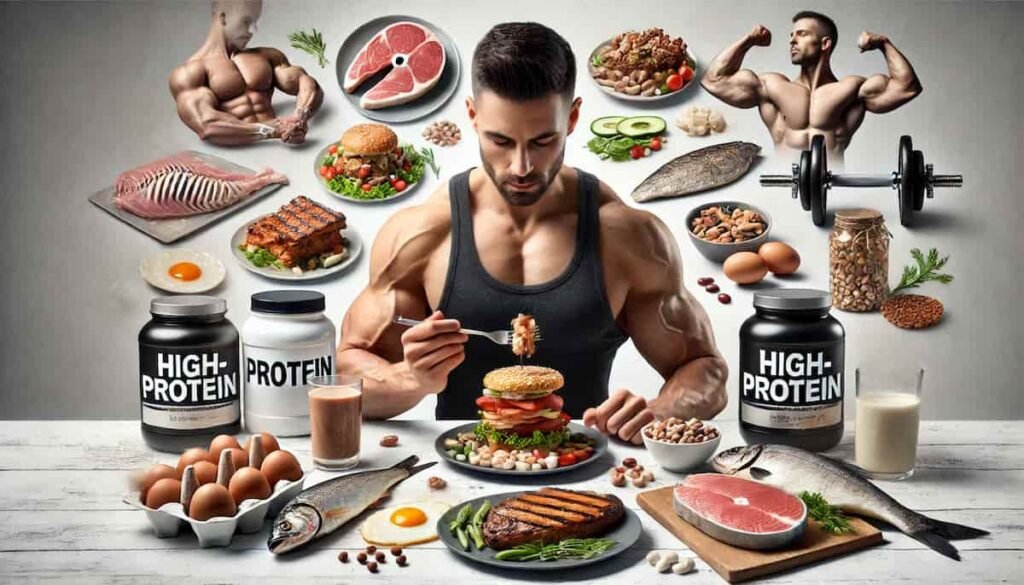
Here’s why you should care about getting enough protein:
- Muscle Growth and Repair: Protein is essential for repairing and building muscle, especially if you’re working out or lifting weights.
- Satiety: Eating more protein can help you feel fuller for longer, which can be a huge bonus if you’re trying to cut down on snacking or manage your weight.
- Metabolism Boost: Your body burns more calories digesting protein compared to fats and carbs, so upping your protein intake can help boost your metabolism.
- Maintaining Muscle Mass: As we age, we naturally start to lose muscle mass. Eating enough protein can help slow down this process and keep you feeling stronger for longer.
How Much Protein Do You Actually Need?
Now, before you start downing protein shakes left and right, it’s important to figure out how much protein you really need. The general recommendation for most adults is about 0.8 grams of protein per kilogram of body weight. Check out our review for MEVY Diet.
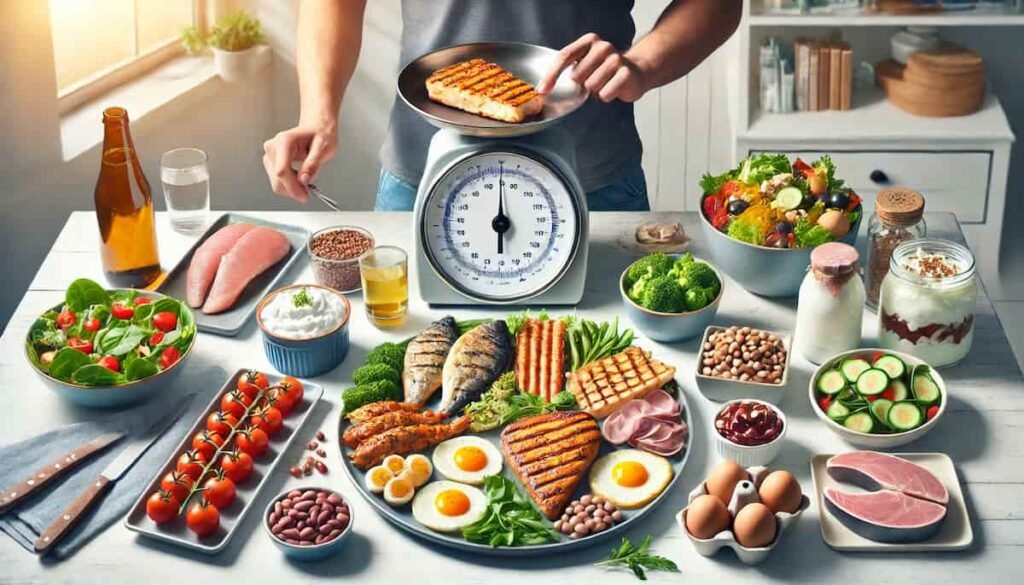
But if you’re more active—especially if you’re doing strength training—you might need closer to 1.2 to 2.0 grams per kilogram. Check out our review for Collagen Diet.
Here’s a simple way to calculate it:
- Moderately active: Multiply your weight in kilograms by 1.2
- Highly active: Multiply your weight in kilograms by 1.6-2.0
For example, if you weigh 70 kg and are moderately active, you’d aim for around 84 grams of protein per day.
Best Sources of Protein: Animal vs. Plant-Based
Not all protein sources are created equal. You can get protein from both animal and plant-based foods, but they come with different benefits. Here’s a quick comparison:
Animal-Based Protein
Animal proteins are considered “complete” proteins because they contain all nine essential amino acids your body can’t produce on its own. Check out our review for Ayurvedic Diet
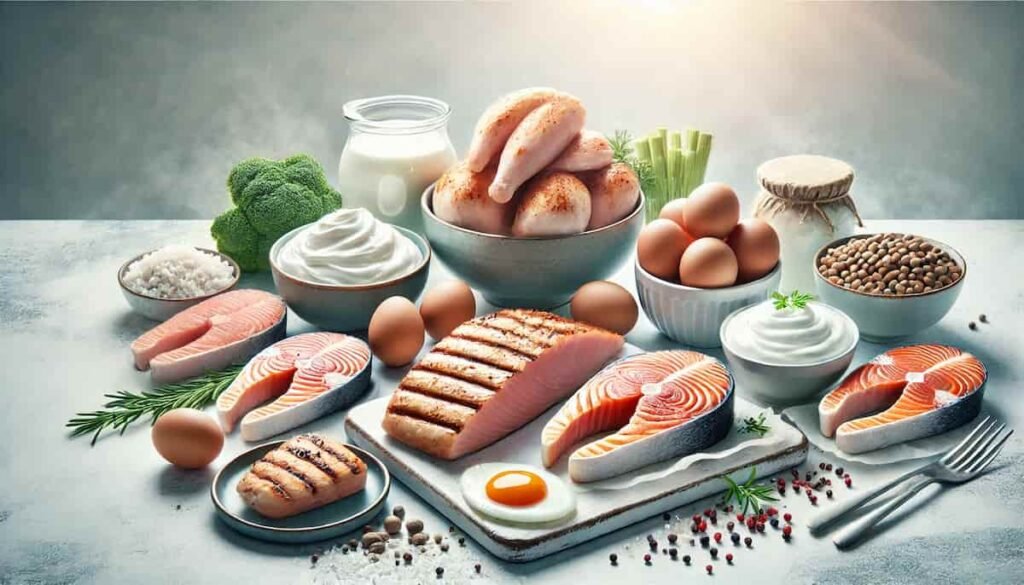
If you’re looking to build muscle or recover from exercise, animal proteins are generally more efficient because they’re highly bioavailable, meaning your body can use them easily.
Some great animal-based options include:
- Chicken breast: 31g of protein per 100g
- Eggs: 6g of protein per egg
- Salmon: 25g of protein per 100g
- Greek yogurt: 10g of protein per 100g
Plant-Based Protein
While most plant-based proteins are “incomplete” (lacking one or more essential amino acids), you can still get plenty of high-quality protein from plant-based sources. You just need to eat a variety of them to ensure you’re getting all the amino acids you need. Check out our review for Paleo Diet.
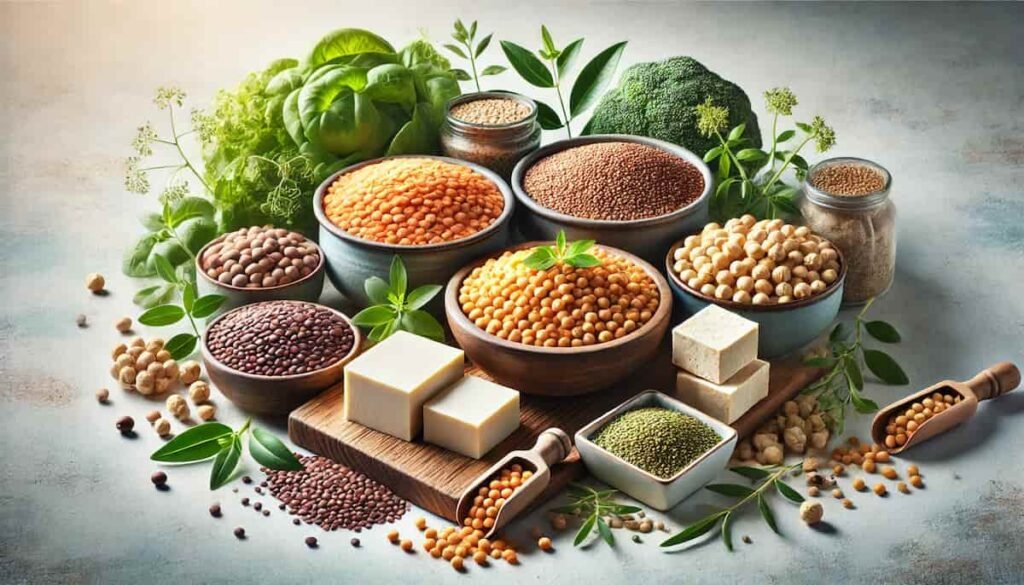
Some great plant-based protein sources include:
- Lentils: 9g of protein per 100g
- Quinoa: 4g of protein per 100g
- Chickpeas: 19g of protein per 100g
- Tofu: 8g of protein per 100g
Protein Table Comparison
| Protein Source | Protein per 100g | Calories | Best For |
|---|---|---|---|
| Chicken breast | 31g | 165 | Muscle building, low-fat |
| Eggs | 6g per egg | 78 per egg | Versatile, easy meals |
| Salmon | 25g | 208 | Healthy fats, omega-3s |
| Lentils | 9g | 116 | Plant-based protein, fiber |
| Quinoa | 4g | 120 | Gluten-free, versatile |
| Greek yogurt | 10g | 59 | Low-calorie, high protein |
| Tofu | 8g | 76 | Vegan protein, versatile |
Pros and Cons of High-Protein Diets
While high-protein diets have many benefits, it’s important to understand both sides of the coin. Let’s break down the pros and cons:
Pros
- ✔️ Weight Loss: A high-protein diet can help you feel fuller, reducing overall calorie intake.
- ✔️ Improved Muscle Mass: More protein, especially combined with resistance training, can lead to more muscle growth.
- ✔️ Better Metabolism: Your body works harder to digest protein, which can slightly increase your metabolism.
Cons
- ❌ Strain on Kidneys: High-protein diets can be taxing on your kidneys, especially if you already have underlying kidney issues. It’s important to stay hydrated and check with a doctor if you’re concerned.
- ❌ Limited Variety: Focusing too much on protein could lead to a lack of other important nutrients like fiber, especially if you’re not eating enough fruits and vegetables.
- ❌ Expensive: Quality protein sources, especially animal-based ones, can be more expensive than carbs or fats.
Tips for Incorporating More Protein into Your Diet
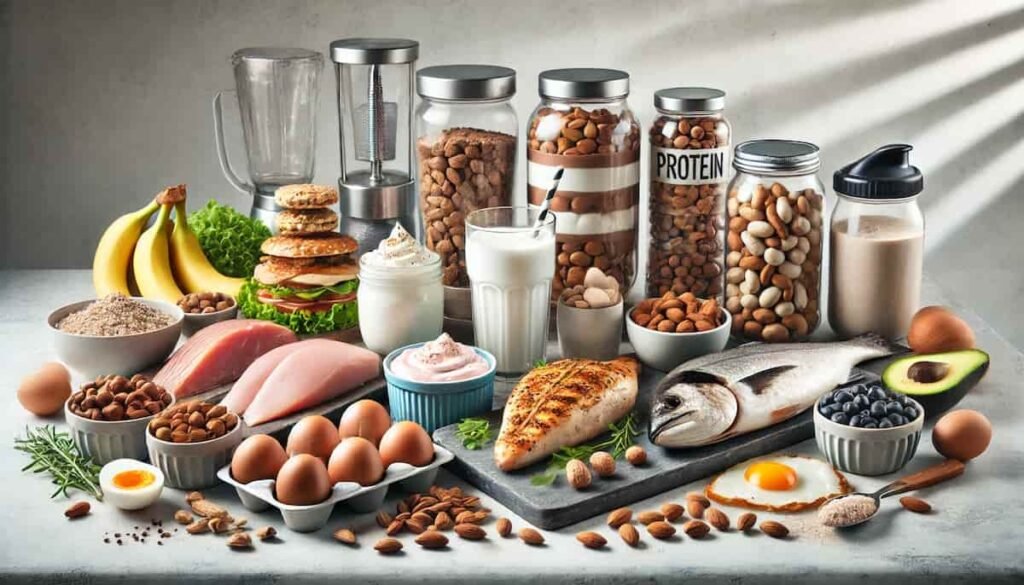
If you’re looking to boost your protein intake without feeling overwhelmed, here are a few simple tips:
- Start with breakfast: Swap out sugary cereals for eggs, Greek yogurt, or a protein smoothie.
- Snack smart: Keep high-protein snacks like nuts, cheese, or boiled eggs on hand for when hunger strikes.
- Go lean: Choose lean meats like chicken breast, turkey, and fish over processed meats like bacon or sausage.
- Add beans and legumes: If you’re going for a plant-based approach, add lentils, chickpeas, or black beans to your meals for a protein boost.
- Protein powder: If you’re struggling to hit your protein goals, consider adding a scoop of protein powder to smoothies or oatmeal.
Conclusion
A high-protein diet is a powerful tool for building muscle, maintaining energy, and even shedding a few extra pounds. The key is finding the right balance and choosing quality protein sources that fit your lifestyle, whether you’re an omnivore, vegetarian, or vegan. Just be mindful of the potential downsides and make sure you’re getting a well-rounded diet. Check out our review for DASH Diet.
FAQs
Is it bad to eat too much protein?
Eating too much protein can be harmful, especially if you have kidney issues. It’s important to balance your protein intake with carbs and fats and not to overdo it.
Can you lose weight on a high-protein diet?
Yes, a high-protein diet can help with weight loss by making you feel fuller for longer and reducing overall calorie intake.
What are the best plant-based protein sources?
Great plant-based proteins include lentils, chickpeas, quinoa, and tofu. These options provide plenty of protein and other important nutrients.
Is whey protein good for muscle building?
Yes, whey protein is a fast-digesting protein that’s highly effective for muscle growth, especially when consumed post-workout.
How do I know if I’m getting enough protein?
Track your meals and ensure you’re hitting the recommended daily intake based on your activity level. You can also monitor your energy levels, muscle mass, and hunger cues as indirect signs.
Can I follow a high-protein diet if I’m vegetarian?
Yes! Vegetarians can get plenty of protein through eggs, dairy products like Greek yogurt, and plant-based sources like beans, lentils, and tofu.